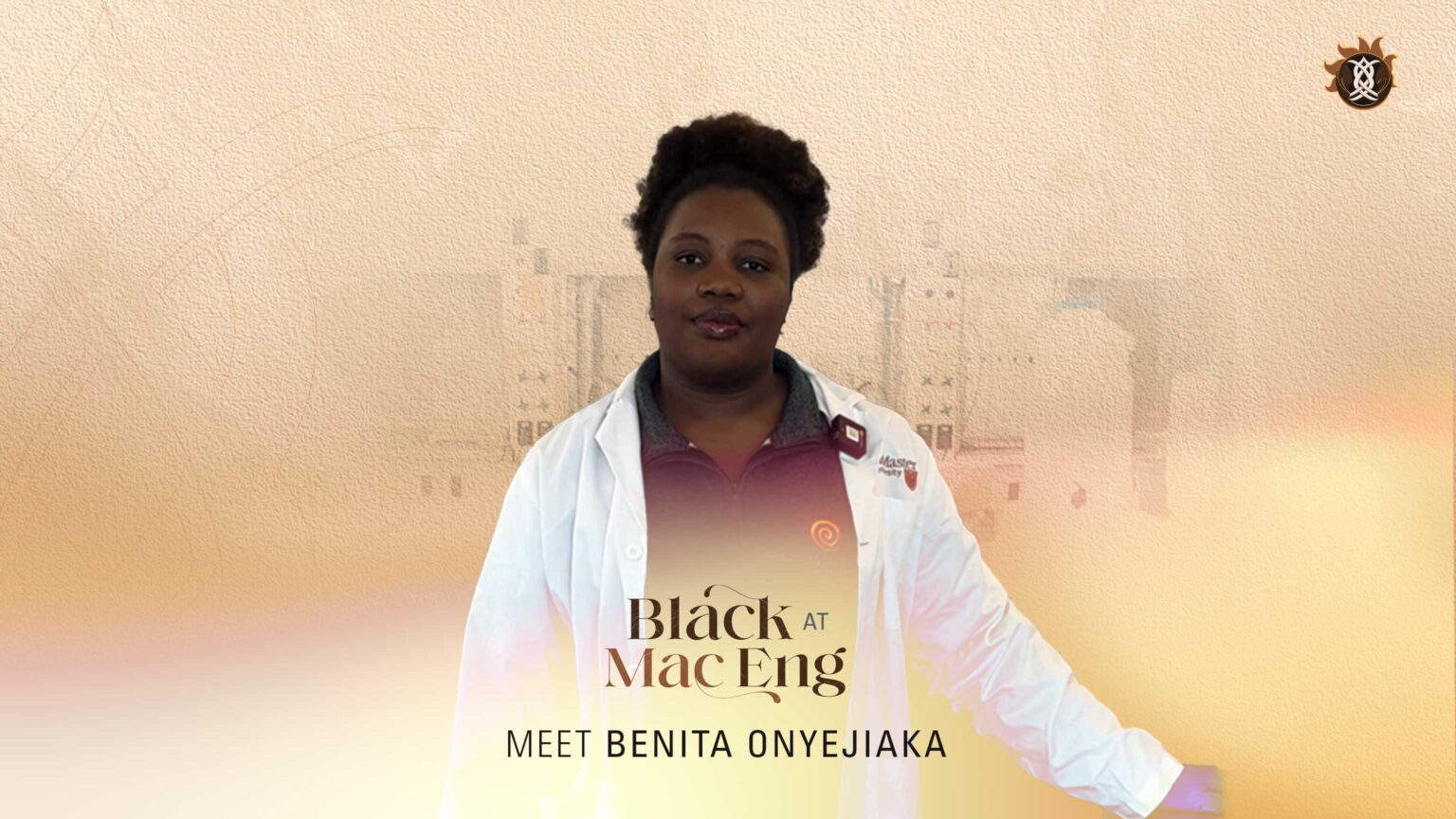
In celebration of Black History Month, meet fourth-year Biotechnology student Benita Onyejiaka. Read about Benita’s passion for medicine, her views on the importance of Black representation in STEM and what contributions she hopes to make to the field of Biotechnology in the future.
What is your background?
My name is Benita Onyejiaka. I was born in Nigeria; my family is from Anambra state, and my native language is Igbo. I am currently studying in the engineering field under the Biotechnology stream. I also work as a Teaching Assistant for the GENTECH 2HR3 course, contributing to the academic support and learning experience of students. And during the weekends, I work at a cafe at Juranvinski Hospital.
What do you love most about Biotechnology?
The most exciting thing to me about biotechnology is its capacity to solve difficult problems in medicine and other fields. Biotechnology and modern technology can be used to create novel solutions that will lead to improvements in environmental sustainability, healthcare and agriculture. It is incredibly motivating to work in an area that has the potential to change people’s lives and the course of history.
Why is Black representation in science, technology, engineering and mathematics (STEM) important?
There should be more Black representation in STEM fields for several reasons. To begin with, it fights prejudices and breaks down preconceptions by highlighting the variety of skills found within the Black community. Secondly, it encourages innovation and inclusivity by offering role models and motivating the next generation of Black people to choose STEM fields. Finally, varied viewpoints in STEM promote more thorough problem-solving, guaranteeing that scientific and technical breakthroughs benefit all of humanity.
What’s the best advice you’ve ever received and how have you applied it to your life?
When given a chance to learn something, learn it…no skill is useless. I have applied this to my life by taking on multiple extracurriculars and co-op positions and gaining different skills from them.
What future contributions do you hope to make in the field of Biotechnology?
Over the next 10 years, I anticipate that the Biotechnology sector will experience substantial expansion due to improvements in personalized medicine, gene editing technologies and sustainable bioprocessing processes. I aspire to contribute to ground-breaking research, pushing the boundaries of scientific knowledge and making a meaningful impact on healthcare or related industries.
